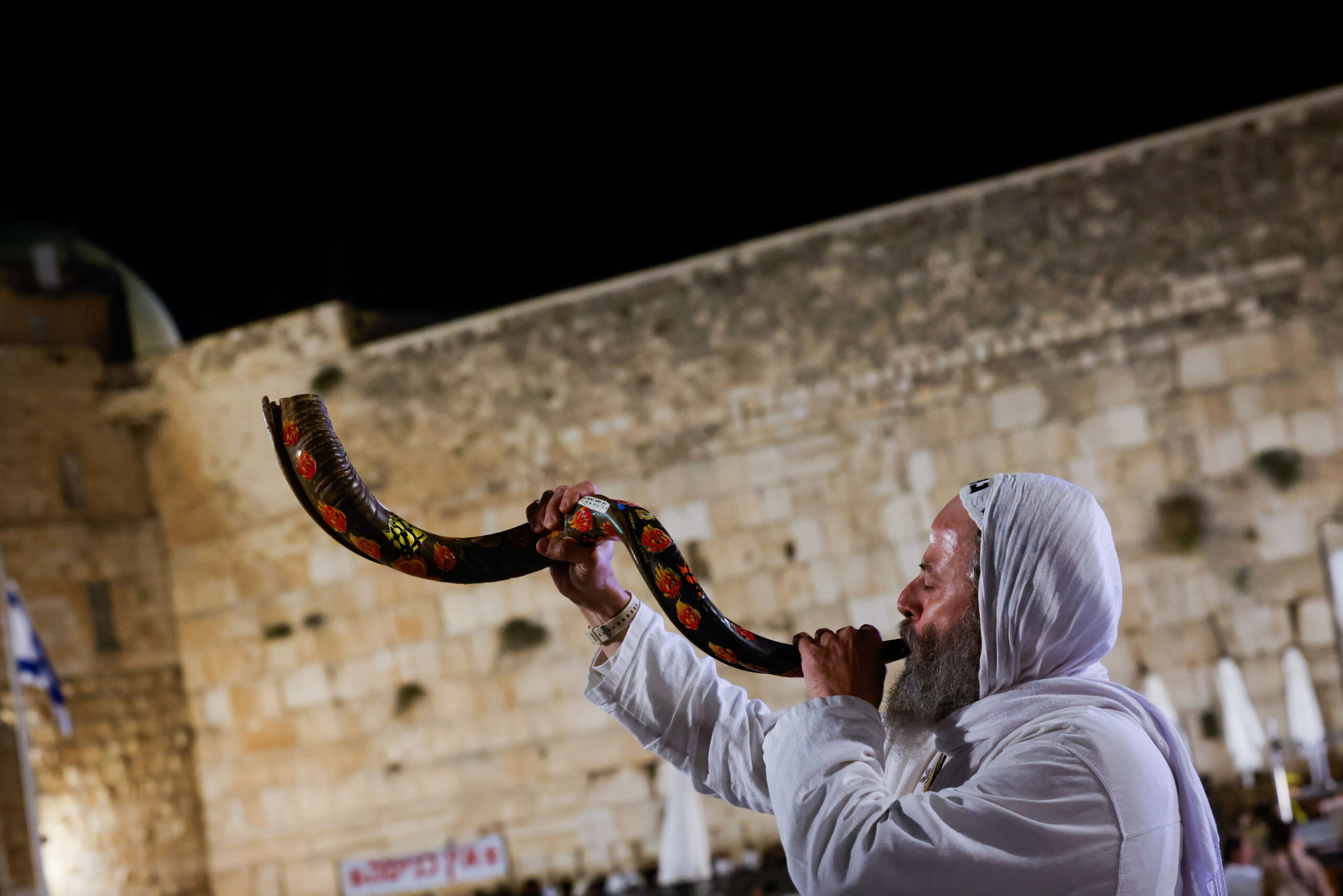In a public statement this week, Ha’arun Nasser al-Din, the Hamas official overseeing Jerusalem affairs, issued a warning against Jews visiting the Temple Mount on the upcoming Rosh Hashanah, claiming they represented a “dangerous escalation” as part of a broader “religious war” targeting Islamic holy sites. He urged Palestinians in Jerusalem, Israel, Judea, and Samaria to come to Al-Aqsa Mosque, pray there, and remain present at the site in order, he said, “not to abandon it to the settlers.”
It should be remembered that the Hamas-led massacre of Israelis on Oct. 7, 2023, was launched to take place on the Jewish holy day of Shemini Atzeret/Simchat Torah, which falls on the eighth day of Sukkoth. Dubbed the Al-Aqsa Flood, Hamas and Hezbollah claimed the attack was sparked by the arrival of five red heifers in Israel, which they said would lead to the construction of the Third Jewish Temple on the Temple Mount in Jerusalem
Rosh Hashanah, the Jewish New Year, will begin on Monday, September 22.
Nasser al-Din is a Turkey-based Hamas financier who the U.S. Department of the Treasury designates as a Specially Designated Global Terrorist (SDGT). He is reported to be involved in a finance network that coordinated the transfer of funds from Turkey and Gaza to Hamas’s command center in Hebron. The United States also accuses Al-Din of working with U.S.- designated Hamas senior official Saleh al-Arouri to increase instability across the West Bank on behalf of Hamas.
Similarly, on Monday, the Palestinian Authority condemned attempts by Jewish activist groups to sound the shofar on Jerusalem’s Temple Mount, calling the ram’s horn a “dangerous tool” used by Israel to assert sovereignty. The P.A.’s Jerusalem Governorate warned in a statement that the Jewish tradition of sounding the shofar throughout the Hebrew month of Elul is “no longer a passing religious ritual, but has become one of the most dangerous tools of the occupation to impose its alleged sovereignty.”
The statement denounced attempts to sound the shofar on the Temple Mount as a “direct assault” on the Al-Aqsa Mosque. It said it held Israel’s government “fully responsible for repercussions.”
The PA claimed that the shofar-blowing carries “deep political symbolism in the Jewish faith, as it has historically been linked to declaring victory and control,” accusing Jerusalem of seeking to transform Al-Aqsa Mosque into a “center for Talmudic rituals.”
Indeed, the Temple Institute posted a video to its Facebook page showing a group of Jews blowing the shofar on the Temple Mount.
Breaking News. For the first time in two thousand years, Jews have blown the shofar on the Temple Mount. This is historic. Thank G-d. pic.twitter.com/OQf5HFZKiF
— Israel Now (@neveragainlive1) August 26, 2025
“For the first time in 2,000 years, the shofar is being sounded on the Temple Mount,” the post read. “The shofar is the sound of Israel returning to HaShem and the sound of the coming ge’ula (redemption).”
The post quoted the Book of Isaiah:
“And it shall come to pass on that day, that a great shofar shall be sounded, and those lost in the land of Assyria and those exiled in the land of Egypt shall come, and they shall prostrate themselves before HaShem on the holy mount in Jerusalem.” (Isaiah 27:13)
While the blowing of the shofar at Judaism’s holiest site was indeed cause for celebration, the recent event was not, in fact, the first time in 2,000 years that this had taken place. Last year, on the first day of Rosh Hashanah, a group of Jews smuggled shofarot onto the Temple Mount and, despite police efforts to stop them, blew all of the requisite shofar blasts for the holiday. In a separate statement cited by the Jordan News Agency, Sufian Qudah, a spokesman for Amman’s Foreign Ministry, condemned what he described as “provocations, including blowing the shofar,” at the holy site. He decried “ongoing breaches” by “extremists with the approval and facilitation of the Israeli occupation authorities,” denouncing them as a “dangerous sign of the extremist Israeli government’s gambles against the stability and security of the region.”




